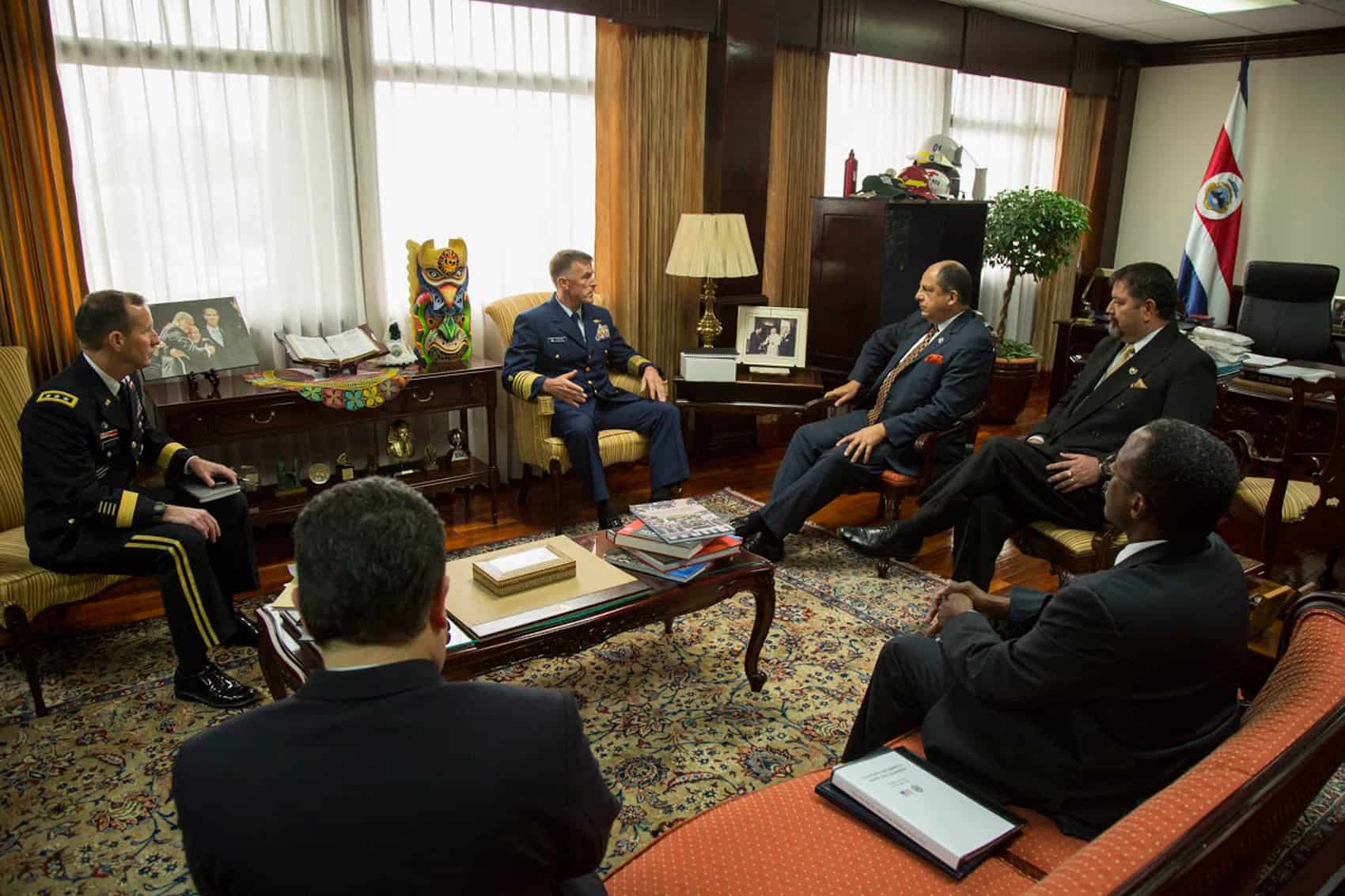The U.S. President’s National Drug Control Strategy Interdiction Committee met with President Luis Guillermo Solís and other Costa Rican officials as part of a regional tour Wednesday. The committee’s visit to Costa Rica coincides with the latest dust-up over the landing of U.S. military aircraft in Costa Rica as part of the joint patrol agreement between the two countries.
During a series of meetings Wednesday Costa Rican law enforcement agencies met with a delegation headed by Captain Harry Schmidt, Executive Director of the Interdiction Committee, U.S. Coast Guard Admiral Paul F. Zukunft, U.S. Ambassador S. Fitzgerald Haney, and other U.S. agencies, including the DEA. The Interdiction Committee is tasked with making interagency recommendations for integrating detection, monitoring, and law enforcement with interdiction efforts to disrupt illicit drug trafficking networks in the Western Hemisphere.
The delegation first traveled to Colombia before arriving in Costa Rica, according to the U.S. Embassy in San José. From here, they will travel to Panama and finally El Salvador.
Following a meeting between President Solís and representatives of U.S. law enforcement, Public Security Minister Gustavo Mata said that Costa Rica and the United States were strong allies in the fight against drug trafficking. According to the Public Security Ministry, 55 percent of the cocaine seizures at sea in Costa Rica this year were thanks to assistance from U.S. forces.
Mata told reporters that Solís asked for a greater exchange of intelligence between the U.S. and Costa Rica when it came to fighting organized crime.
“This is a joint job for the region. We need to work together,” Mata said.
The fundamentals of the cooperation may be strong but the presence of U.S. military aircraft or ships in Costa Rica is a constant source of debate in the Legislative Assembly, especially among the Broad Front Party and members of the ruling Citizen Action Party.
According to the Costa Rican Constitution, the Assembly must approve the presence of any foreign troops or military vessels in the country. Even the Coast Guard Gulfstream jet that brought the U.S. interdiction committee members to Costa Rica this week required a vote from the Legislative Assembly.
In September, the brief re-fueling of five CH-47 Chinook and UH-60 Black Hawk U.S. military helicopters at Daniel Oduber International Airport set off the latest spat between lawmakers and the executive branch over the presence of U.S. military vessels in the country.
More recently, a U.S. Lockheed Martin C-130 Hercules transport plane was forced to leave Costa Rica Friday after it landed here on Oct. 15. On Monday lawmakers pointed fingers over who was to blame for the plane’s expulsion.
The U.S. Embassy has maintained that Navy and Coast Guard vessels operate in the same capacity under the joint patrol agreement. But many Costa Rican lawmakers disagree with the subtle distinction and only support the use of Coast Guard ships in Costa Rican waters.
Public Security Minister Mata said that the Interdiction Committee delegation did not express concern over the delays in approving the presence of U.S. craft.
Lawmakers frequently debate the implementation of the joint patrols but many acknowledge their value.
“Costa Rica does not have the capacity to face the fight against drug trafficking with its own resources and requires the international cooperation,” Citizen Action Party lawmaker Victor Morales said at the Legislative Assembly Tuesday. Morales said he believed the joint patrol agreement is flawed “but at this time we have no better alternative.”






